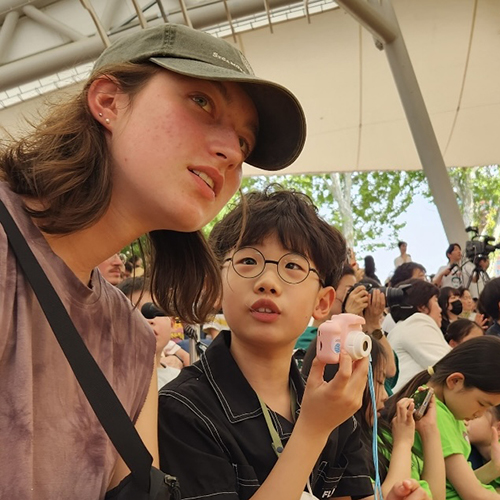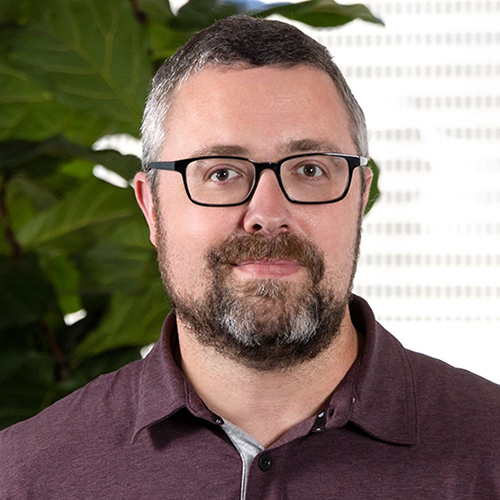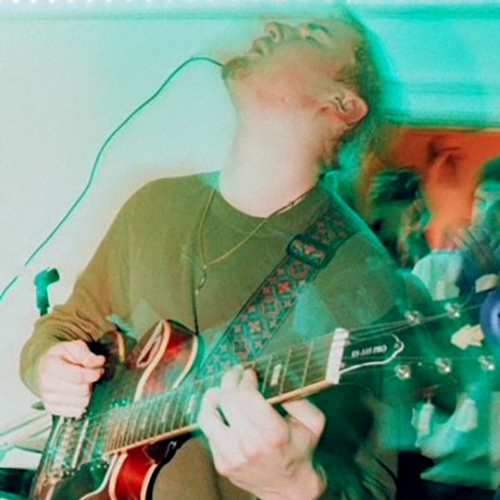When Don Knoke’s draft number came up two weeks after Pearl Harbor, he was 45 credits shy of graduating from the UW. He deferred his enlistment and piled on the courses, concluding with a 15-credit field course in plant taxonomy taught by legendary botany professor C. Leo Hitchcock. That choice would prove fortuitous.
Although Knoke had no prior experience with botany, he had spent his life on a farm surrounded by native plants. The course piqued his interest in plant identification and led to a lifelong friendship with Hitchcock (for whom Hitchcock Hall is named). And it led Knoke back to the University 50 years later.
Since retiring in 1994, Knoke has participated in the UW Herbarium’s annual plant collecting forays and has volunteered in the Herbarium collections. He, like many other alumni, has discovered that the College’s programs are not just for students. There are myriad opportunities to develop a “new” relationship with the College — taking classes, doing field research, sometimes even teaching — many decades after graduating.

A Passion for Plants
Knoke majored in chemistry at the UW, and had not taken a single botany course before signing up for plant taxonomy. Why the sudden interest? Perhaps it was the course description.
“It mentioned that the class would spend the whole summer camping east of the mountains, identifying flowers,” says Knoke. “That’s all I needed to know.”
After completing the course, Knoke spent four years in the Navy, flying DC-3s up to Point Barrow, Alaska and down to California. Then he returned to the family farm in Thorp, Washington, which he ran for nearly fifty years.
“I thought I’d go on to graduate school but I returned to the farm instead,” he says. “It was a good life and I was in the habitat I preferred.”
In his spare time, Knoke strolled his property, identifying plants. He was able to identify numerous weeds, including a few new to the area and of interest to the Kittitas County Noxious Weed Board. He also maintained contact with Professor Hitchcock and joined him on numerous hikes to identify plants.
On one occasion, Hitchcock and Knoke traveled to the Grand Canyon to search for a wild pea vine they’d heard was growing along the trail. They set out on an arduous 13-mile hike to find the vine, only to discover it growing just 300 yards from the beginning of the trail. “But our ride had already left to meet us on the other side of the canyon,” says Knoke with a laugh. “So we did the hike anyway.”
Even now, at age 83, Knoke braves strenuous hikes to search out unfamiliar plants. He began hiking with the Washington Native Plant Society (WNPS) in 1990, and has joined the Herbarium’s collecting forays for the past six years. The five-day forays involve hiking and camping with up to two dozen hardy souls—many of them UW faculty and students—to collect plants, press them, and bring them back to the UW for identification.

“Don is extremely active,” says Dick Olmstead, professor of biology and curator of the Herbarium, “and I don’t just mean active for his age. Most of our field trip participants can’t keep up with him.”
Or his knowledge of plants. Described by Olmstead as “one of the most knowledgeable individuals I know when it comes to the flora of Washington,” Knoke is now creating a database of native and introduced plants in Washington, by county, for WNPS. And he spends time in the Herbarium, identifying plants from samples pressed in the field.
Of his involvement with the UW, Knoke says, “It’s great to communicate with others of like mind. You go on a trip and get in a heated discussion about what you’re looking at.” He adds with a laugh, “And you argue about how to pronounce plant names. There’s a lot of disagreement about that.”
A New Role as Teacher
Like Don Knoke, Joe Boldan dipped his toe in botany as a UW undergraduate in the 1970s—with different results. He was studying landscape architecture, inspired by a Sports Illustrated article about a landscape architect who designed golf courses. Then came Botany 113, required for the degree.
“We were expected to remember the family, genus, and names of 300 plant families, and I just couldn’t do it,” says Boldan. “After the third try, that was it. My attempts to pass that class were legend among my friends.”
Boldan eventually decided on a psychology major, drawn in by the quality of teaching. Now he’s returned to campus to teach a Department of Psychology course himself. The course—a one-credit class on psychology in the workplace—was something he mentioned in a meeting with department chair Ana Mari Cauce. He thought she’d just smile politely; instead she was intrigued.

Teaching is new to Boldan, but the focus of the class—business—is a world he knows well. He began working in the retail industry soon after graduating, eventually becoming a buyer at the Bon Marché. He later worked for a local wholesale garment company, then started his own business in 1986.
His company, first named DeSar Inc. and later changed to Ex-Officio, is known for its outdoor, travel, and fly-fishing sportswear. Through the years, the company grew to nearly 50 employees. But by 2000, Boldan and his two business partners were ready for a change and sold the company. That freed him to think about other opportunities—like teaching a UW psychology class.
Motivated by Cauce’s interest in the course, Boldan developed a preliminary syllabus. Then Cauce put him in touch with Professors Frank Smoll and Ron Smith, who helped him polish the course.
“Along with Cauce, they became my mentors in the Psychology Department,” says Boldan. “They told me what I needed to do to create the course. They were instrumental in helping me articulate my thoughts and put them on paper. I can’t say enough about how wonderful all three have been to me.”
The focus of Boldan’s class is how to effectively deal with people in the workplace. Understanding this, he says, is critically important to success in business. “The number one asset in business is its people—period,” he says. “People produce, people market, people design. And people usually leave jobs not for more money but because they are in a dysfunctional situation.”
Boldan has presented and discussed some of those dysfunctional situations in class using role playing and the Socratic method of questioning to tease out the psychological nuances of the work environment. “Sometimes the students have no idea what’s happening and they have to figure it out,” he says. The first day of class, he asked a student what position she was interviewing for. She stumbled, not knowing how to answer. A second student did the same. “By the time I asked a third student, she figured it out and made up a fictitious job,” says Boldan. “Then I could begin asking the dreadful, brutal interview questions you always get.”
Boldan describes the 14 students in the class—all psychology majors—as “fantastic.” And he’s humbled by what it takes to prepare and teach a UW course—even a one-credit course to be graded credit/no-credit. “It’s way more difficult than I ever imagined,” he says. “These kids will know in a second if you’re not prepared.”
Back to the Books
Carolyn Stark won’t have the opportunity to attend Boldan’s class. But more than 50 years after graduating from the UW, she finds herself back in its classrooms up to four days a week. Stark has returned to the University through the Access Program, which enables anyone over age 60 to audit courses for a nominal fee.
As a UW undergraduate, Stark majored in textiles, clothing, and art (in the former School of Home Economics) with the intention of pursuing a career
in merchandising. Marriage and parenthood changed her plans—she was a stay-at-home mom in Denver—but as her kids grew she returned to the arts as a volunteer at the Denver Art Museum, then earned an MFA at the University of Denver. Eventually she joined the Denver Art Museum’s paid staff as education director, training volunteers to lead tours. “I had been a volunteer for 15 years,” she says. “My skills were just right for the job.” Returning to Seattle in 1977, she became volunteer director at Providence Hospital and later Swedish-Ballard Hospital.
Although Stark spent a dozen years working in hospitals, she continued to crave contact with art. As she neared retirement, she trained to become a docent at the Seattle Art Museum—a two-year endeavor that involved weekly sessions to learn about the museum’s collections. She’s been a docent there ever since, leading 20 tours a year, mostly for school groups. And now she’s taking Access classes that add to her arts knowledge.
“I knew about the Access Program from friends who had been taking courses through it,” says Stark. “After I retired, I signed up right away. I realized this was a way to come back to campus and study in depth subjects I’d only touched on in survey courses as an undergraduate. And I loved the idea that I didn’t have to worry about memorization or exams. I could pursue what I wanted without that pressure.”

Starks first chose a course on Islamic history, in preparation for a trip to Turkey with her husband. Then she began taking art history and architecture courses. She figures she’s taken 15 courses since 1995, and she has no intention of slowing down.
Although some Access students do little more than attend lectures, Stark tries to complete all the assigned readings. “Keeping up with the readings reinforces what I learn in class,” she says. “It makes it so much richer. I use the School of Art library and I’ve learned to use the Internet so I can read course materials online.”
What Stark does not do is speak up in class—unless she is asked. It’s not shyness; she wants to avoid usurping time meant for enrolled students. “I’m careful about that,” she says. “I think it’s important for the students to have the chance to express themselves.” Yet she finds, repeatedly, that students welcome her presence.
“They are very receptive to my being there and to my interest in their reasons for being there,” she says. “The contact with students is a real bonus.”
Has she seen any changes in students, or the campus, since her days as an undergrad? Stark laughs. “We used to walk in the woods to get to class,” she says, “and there was no student union building.” As for the students, she’s noticed more older students than in her day, and many with jobs. “I’m amazed at the juggling I see going on with these students, and their ability to take a class, have a job, and commute,” she says. “With all that, academic standards seem higher than I remember.”
Maybe one day the current students will take advantage of the Access Program as Stark does now. It’s an experience she treasures.
“I think the University is such a rich resource,” she says. “It’s such an exciting experience for older people to have this level of shared learning. You could do this on your own, but you wouldn’t have the same richness of preparing and discussing the content with professors and students. I take classes in the morning and it makes the whole day interesting to me.”
More Stories

Finding Family in Korea Through Language & Plants
Through her love of languages and plants — and some serendipity — UW junior Katie Ruesink connected with a Korean family while studying in Seoul.

Working Toward Responsible AI
Artificial intelligence (AI) is an essential tool at Indeed, a global job-matching and hiring platform. Trey Causey (2009) works to ensure that the company's AI promotes equity and fairness.

Celebrating Contemporary Indigenous Music
Markus Teuton, a musician and citizen of Cherokee Nation, explores contemporary Indigenous music through his academic work and as host of “Indigenous Jazz,” a radio show.